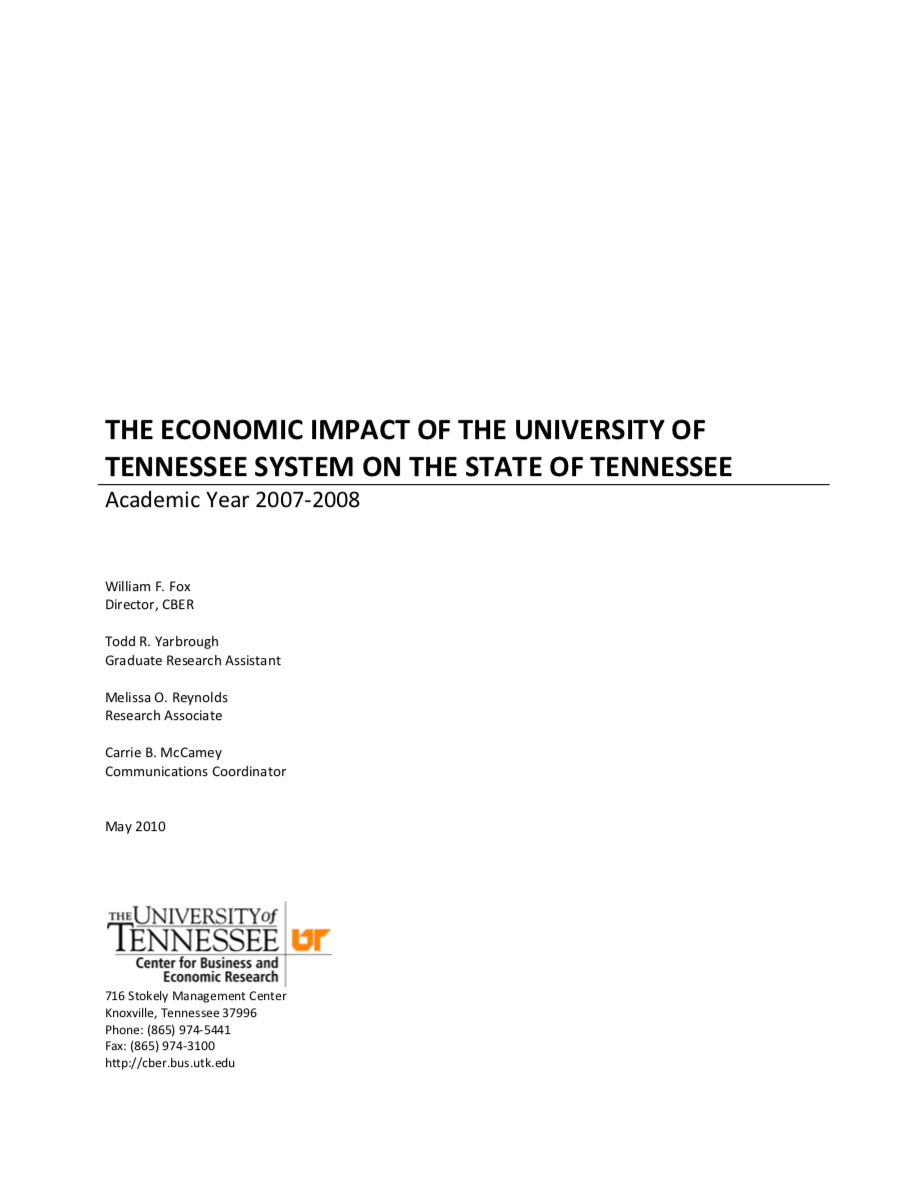The Economic Impact of The University of Tennessee System on the State of Tennessee; Academic Year 2007-2008
Publication Date: May 1, 2010
This study summarizes the estimated impacts of the University of Tennessee system (UT System) on the Tennessee economy for Fiscal Year 2008 (FY08). The economic impacts estimated in this study include income and jobs created by spending of the university and its employees and students. Tennessee’s economy benefits from the presence of the UT System in several ways. First, the university provides 28,487 faculty, staff, and student employees with salaries. UT System’s payroll for FY08, both salary and benefits, was $1.1 billion. Our estimate indicates that payroll spending impacts the state economy in the amount of $2.1 billion and helps create about 15,050 additional jobs. Second, the university spends money on goods and services in the state, which creates jobs and income. The UT System made $334.5 million in non-payroll expenditures in FY08, which generated $224.2 million in income and created 5,230 jobs. Lastly, spending by visitors attending athletic events and by students generates significant economic activity in the state. We estimate student expenditures for FY08 to be approximately $348.0 million, creating $147.3 million in income and creating 4,879 jobs. Combining the effects of payroll ($2.1 billion), non-payroll ($224.2 million), and student and visitor spending ($147.3 million), we find that the UT System generates a total of approximately $2.5 billion in income and creates 53,645 jobs for the state of Tennessee, including those currently on university payroll. In addition, we estimate that $237.6 million is generated in state and local tax revenue from the presence of the university system.


